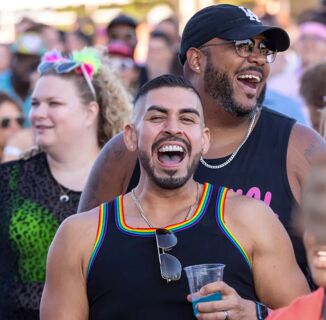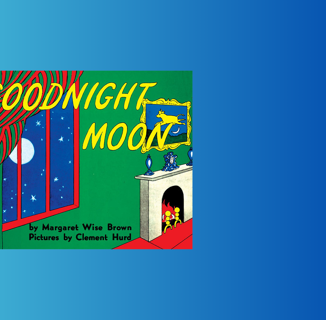This article discusses suicide and may in itself be a trigger for some readers. Help is available via the National Suicide Prevention Lifeline at 1-800-273-8255 and Trans Lifeline at 877-565-8860. LGBTQ youth 24 and younger can find help via the Trevor Project Lifeline at 1-866-488-7386.
Four years ago today I tried to kill myself. And not for the first time; that was four years ago this past Sunday.
Hard as I have fought to put those attempts behind me, my awareness of the anniversary of these bookended breakdowns is compounded by today’s news of Anthony Bourdain’s suicide in Paris, just a few days after that of Kate Spade.
Even though we who are LGBTQ lose friends to suicide at a greater rate than the straight population, and we read about members of the community taking their lives nearly every week, I don’t think we’ve seen an outpouring of public shock and despair like this since the August 2014 suicide of Robin Williams.
We’re seeing the same reaction across news media and social media: unanswerable questions of why did they do this, experts opining on what motivates people to take their own lives, and the excruciating reports regarding their methods and the daughters they left behind.
Those details, in and of themselves, can be especially damaging to those of us who are LGBTQ and already fragile, because of the rejections and oppression we face from relatives and society at large. Psychologists call it “suicide contagion,” in which the reporting or discussion of this public health issue triggers those already considering such drastic action, or in the throes of suicide ideation.
The federal Department of Health and Human Services defines it as an increase in suicides due to “the exposure to suicide or suicidal behaviors within one’s family, one’s peer group, or through media reports of suicide.”
And even the strongest among us are not immune. Writer, producer and actress Jen Richards summed this up best in tweets reacting to today’s news.
As some of y’all know, Anthony Bourdain is one of my inspirations, the closest thing I have to an idol. My biggest celebrity crush. A model for how to live fully, how to engage honestly and richly with people and culture and the world, be a writer. I just can’t grasp this news. pic.twitter.com/SYaVj3RMj6
— Jen Richards (@SmartAssJen) June 8, 2018
I have to be honest, this makes me doubt I’ll make it. Not today. Don’t worry, I’m fine today. But in the long run. I’ve been suicidal since I was a child. If he can’t make it, the person who lives the way I thought was best and fullest, what chance do I have escaping the dark?
— Jen Richards (@SmartAssJen) June 8, 2018
Jen tweeted she would take a break from Twitter, and I did the same. Even though neither public suicide involved our community directly, our feelings are relevant because of how their deaths and the response to them impact our own individual struggles. Mine are fresh in my mind because of this being “that awful week” of four-year-old mistakes, and because of a personal crisis I suffered on Wednesday.
That was the day I hit rock bottom for the first time in four years. I felt myself once again slipping from the tightrope I have successfully navigated through crisis after crisis, and falling into darkness.
I became a pariah in the trans community in 2013 for briefly detransitioning and the following year was blacklisted in television news for so-called “performance issues.” I survived a series of public missteps in social media and humiliating mistakes rooted in my white privilege. Then I had to contend with my beloved’s battle with cancer and her unexpected, sudden and tragic death, culminating in the end of my new life and career in Southern California, and my evolution into a single, work-from-home mom raising three children alone in Connecticut.
I even survived the latest round of online hate earlier this month, when Chelsea Manning responded to a tweet I made, with a tweeted threat to end her life. She then tweeted a photo that suggested she was about to leap from a window ledge, which many observers including Eli Erlick concluded was my fault. Since the moment I saw her threat, I have resolved to stop being someone who resorts to snark and criticism in my public life, and instead focus on advocating for kindness, responding to hate with love, even to our enemies.
But it was my own personal crisis — unrelated to anyone else — that drained the tank of resiliency I had relied upon to overcome all those obstacles, time and again. I had a frightening medical emergency and ultimately suffered a complication that was among several possible outcomes related to my life-affirming gender confirmation surgery three weeks ago. I broke down in tears, feeling scared, angry, and overwhelmed all at once. I felt that I could not bear the burden another minute of uncertainty and ugliness.
I wanted to live more than anything in the world, and yet I also wanted to not exist — if this were to continue without resolution. It was not the complication itself that worried me, given it is cosmetic and temporary, but the uncertainty of what happened next broke me. I had conflicting information from different medical staff, none in agreement. Through tears, I recognized this was the same depth of despair I had felt four years ago this week.
But instead of taking a step toward the darkness, I reached out for help, and found it in abundance. I was already in a safe space, a spacious suite at Mount Sinai Beth Israel Hospital, without any responsibilities except to rest and let my body heal.
I picked up the phone and called Heidi Ross, the hospital’s social worker supervisor, who helped me connect with chaplain Michael Horton and then a team of psychiatrists, and I also reached out to both my own shrink and my psychologist back in Connecticut. And I texted with my widow sisters, nine young women like myself who unexpectedly found themselves raising our children alone. They are my first set of actual, in-real-life girlfriends, and they accept me as the woman I am without exception. We support each other in ways no one who is not a widow can understand. They heard me and offered unconditional support, love, and understanding.
I am both someone who has had to learn and remember to practice this act of kindness with others… and at the same time, I am someone people have targeted for harassment and threats and a general lack of kindness. Which really sucks when you’re already down on yourself.
Part of the problem is something the Trevor Project found in how the mainstream news media covers suicide, and how reporting on these incidents “can influence behavior negatively by contributing to contagion or positively by encouraging help-seeking.” In my role as an editor at two LGBTQ publications, it often fell to me to write about suicide and violence against members of our community, and I learned firsthand how important it was to be sensitive to how my own reporting could impact others. The Trevor Project has a great guide for media folks to help them not trigger their readers.
Right now, I’m on the rebound, slowly, from where I was Wednesday. My surgeon, Dr. Jess Ting, instructed me to give myself more time to heal and to rest. And my mental health is a part of that process, too. A big part of that is allowing myself to accept what I cannot change and recognize every challenge is not my last.
Dr. Adamma Okorafor here at Mount Sinai told me of this Haitian proverb: “Beyond mountains, more mountains.” It suggests that even when we complete a difficult task, we will still have more to accomplish. I’m sure that someone might take that to mean, “you’ll never stop struggling.” But I look at the Haitian people and the unimaginable adversity they have faced from natural disasters to political strife, and I see this saying as my inspiration to persist, to restore my resilience, and refill my tank before I tackle the next mountain.
No more mountains today, though. As I prepare to return home, I am using this time to rest, reflect and think of all the reasons I wish to live. And it’s my time to remember that we never know what challenges others may be facing. We can’t always see what mountains they are climbing. Being kind, open to active listening and willing to step up when the signs of despair are apparent is my new calling. I hope that in doing so we all can work to erase the stigma that permeates our society and the negativity surrounding mental health issues. I do this for my own peace of mind as well as the betterment of all people, but especially our own embattled LGBTQ siblings.
If you are a trans or gender-nonconforming person considering suicide, Trans Lifeline can be reached at 877-565-8860. LGBTQ youth (ages 24 and younger) can reach the Trevor Project Lifeline at 1-866-488-7386. Adults can contact the National Suicide Prevention Lifeline at 1-800-273-8255 24 hours a day, and it’s available to people of all ages and identities.
Help make sure LGBTQ+ stories are being told...
We can't rely on mainstream media to tell our stories. That's why we don't lock our articles behind a paywall. Will you support our mission with a contribution today?
Cancel anytime · Proudly LGBTQ+ owned and operated
Read More in Culture
The Latest on INTO
Subscribe to get a twice-weekly dose of queer news, updates, and insights from the INTO team.
in Your Inbox













